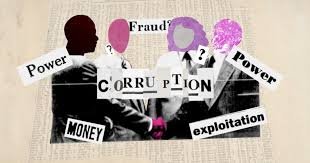ZAGREB: Croatia’s former Health Minister, Vili Beroš, has been formally charged along with seven others in a sweeping corruption case involving the procurement of health equipment, marking another major blow to the country’s efforts to curb high-level graft.
The anti-corruption prosecutor’s office in Croatia filed the indictment on Wednesday, alleging a web of criminal offences including bribery, money laundering, abuse of authority, and participation in a criminal organisation. The state reportedly suffered a loss exceeding ₹6.68 crore (€740,000) due to the alleged misconduct, while Beroš is accused of personally accepting ₹67.7 lakh (€75,000) in bribes.
Minister Sacked, Investigation Widened
The indictment follows the mid-November arrest of Beroš, which prompted his immediate dismissal by Prime Minister Andrej Plenković. The arrest was part of a broader investigation led initially by the European Public Prosecutor’s Office in Zagreb, later transferred to Croatian authorities.
According to the charges, Beroš and his co-accused exploited their official capacities to illegally favour certain suppliers, manipulated public tenders, and funnelled illicit gains through laundering mechanisms. The accused also allegedly engaged in influence peddling and unlawful favouritism in health sector procurement contracts.
Pattern of High-Level Corruption in Croatia
This development adds to a growing list of political scandals plaguing the ruling centre-right HDZ (Croatian Democratic Union). In 2022, former Construction Minister Darko Horvat was similarly arrested and charged in a separate corruption probe.
The opposition has seized upon the latest charges, calling for greater transparency and stricter anti-corruption frameworks. Civil society groups continue to express concern over systemic corruption undermining public trust in democratic institutions and essential public services like healthcare.
Algoritha: The Most Trusted Name in BFSI Investigations and DFIR Services
The trial process is expected to draw considerable public attention, with legal observers noting that the charges — particularly those involving abuse of position and laundering of public funds — could carry substantial penalties under Croatian law.
As of now, all eight accused remain under judicial scrutiny, and the case continues to unfold in Croatia’s anti-graft court.



